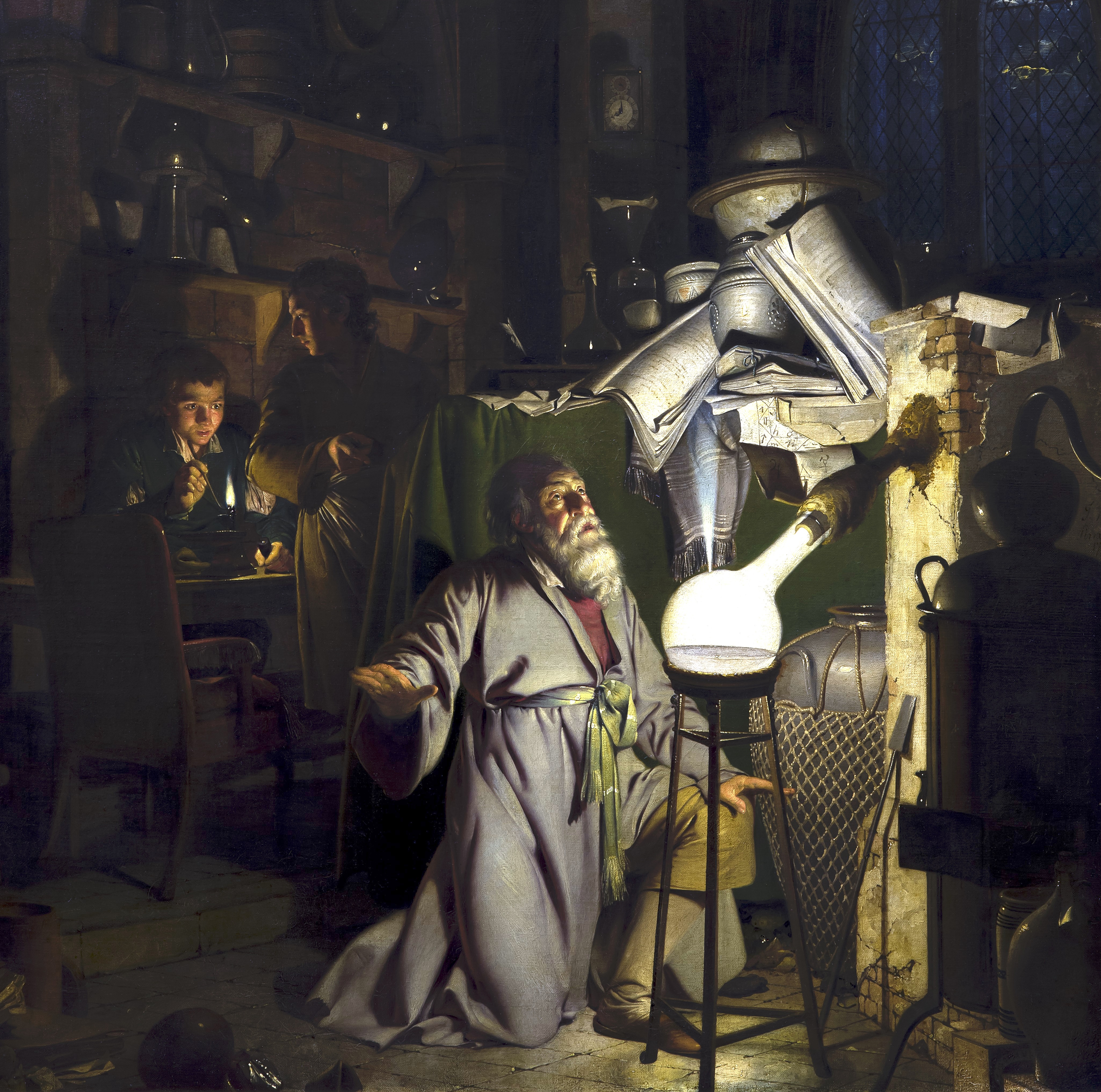The history of understanding the mystery of Matter
|
The history of understanding the mystery of Matter |
|
|
|
|
1754 - 1772 |
|
The discoveries of Carbon Dioxide, Hydrogen, and Nitrogen 1772 - Daniel Rutherford discovers Nitrogen, Scotland https://en.wikipedia.org/wiki/Daniel_Rutherford
Joseph Black (16 April 1728 - 6 December 1799) was a Scottish physicist and chemist, known for his discoveries of magnesium and carbon dioxide. He found that limestone (calcium carbonate) could be heated or treated with acids to yield a gas he called "fixed air." He observed that the fixed air was denser than air and supported neither flame nor animal life. https://en.wikipedia.org/wiki/Joseph_Black | |
|
1669 |
|
Hennig Brand discovers phosphorus, Germany Hennig Brand (1630 - 1692 or 1710), Hamburg, Germany. Hennig Brand was a German alchemist. Like other alchemists of the time, Brand searched for the "philosopher's stone", a substance which supposedly transformed base metals (like lead) into gold. During his searches for developing a method of obtaining gold, around 1669 he heated residues from boiled-down urine on his furnace until the retort was red hot, where all of a sudden glowing fumes filled it and liquid dripped out, bursting into flames. He could catch the liquid in a jar and cover it, where it solidified and continued to give off a pale-green glow. What he collected was phosphorus, which he named from the Greek word for "light-bearing" or "light-bearer." https://en.wikipedia.org/wiki/Hennig_Brand This is how one of the first elements, phosphorus (o el primero no estoy seguro) fue descubierto.
This documentary seems to be nice. It explains how elements were discovered and classified and how the total number of elements was defined. In the second part of the video, the creation of the atomic bomb is explained. |
